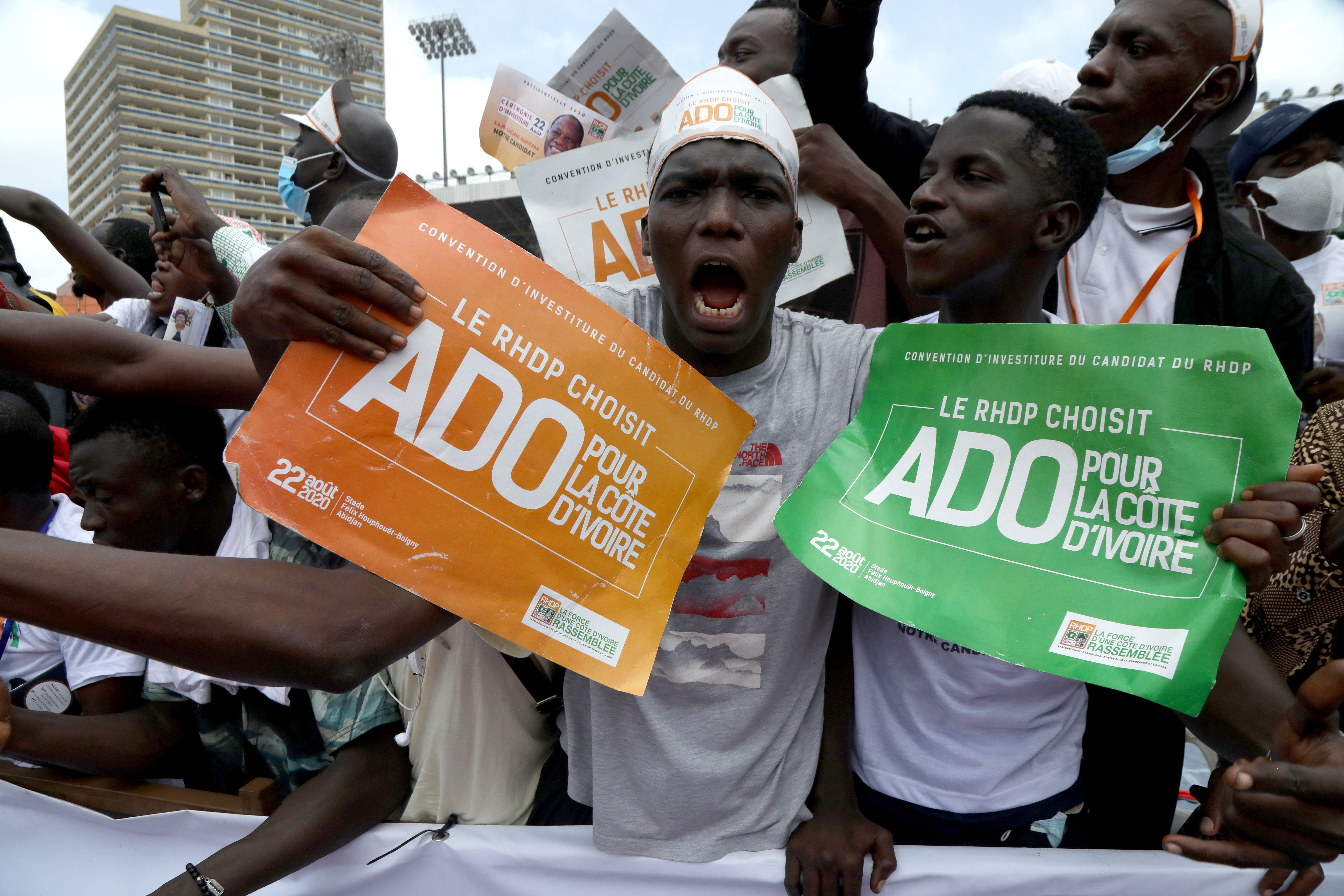August 24, 2020
Ivory Coast president sparks uproar: Violence has broken out across major cities in the Ivory Coast in recent days after President Alassane Ouattara announced that he would seek a third presidential term, a move that would involve challenging the constitution, which does not allow for three consecutive terms. (Ouattara's ruling RHDP party says that this rule doesn't apply because of a technicality dating back to 2016.) Ouattara's bid to stay on comes after Prime Minister Amadou Gon Coulibaly — whom Ouattara tapped earlier this year to succeed him — died of heart failure last month. Protesters say that Ouattara's move is unconstitutional and that he should step aside after two terms in the job marked by ongoing ethnic violence amid a decade-long civil war that has killed some 3,000 people. Further exacerbating tensions, the country's former president Laurent Gbagbo and former rebel leader Guillaume Soro have been barred from running this October.
Is AMLO his brother's keeper? Mexico's left-populist president Andres Manual Lopez Obrador (known to many as AMLO) was elected in 2018 in part on his pledges to root out endemic corruption. And in recent weeks, graft investigations have produced bombshell allegations that several former presidents of Mexico took kickbacks in the energy sector. But now the famously ascetic AMLO has a problem in the family: a leaked video from 2015 shows his brother, Pio Lopez Obrador, accepting a bag of cash from David Leon, a prominent member of AMLO's Morena party. President Lopez Obrador has said that the cash was for Morena operating expenses. Leon has recently been tapped to run the Health Ministry but says he won't take office until the issue is settled. AMLO says the tapes should be reviewed by the authorities, and that all involved should testify if asked. He has even volunteered to take the stand himself in what would be a political telenovela (soap opera) for the ages.
Pompeo on the road: US Secretary of State Mike Pompeo is visiting Israel and the United Arab Emirates this week, in part, to help iron out details of the historic US-brokered normalization of ties between the two countries. But in recent days, the deal has been clouded by revelations that the Trump administration used its bargaining power to negotiate the sale of sophisticated F35 fighter jets to the Emirates. Israel is not happy about the reported side deal, because it would erode the country's "qualitative military edge" in the region. Pompeo will also visit Sudan and Bahrain, two other countries reportedly considering normalizing ties with Israel. Achieving a broader realignment of the Middle East in which key Arab powers close ranks with the Jewish State in order to push back against growing Iranian influence would be a major foreign policy achievement for the Trump administration. Pompeo's trip comes as the US is seeking to "snap back" sanctions against Iran at the UN, and as the president's son in law Jared Kushner prepares to make his own visit to the region later this week.
More For You
- YouTube
On Ian Explains, Ian Bremmer takes a look at the growing surge in global conflict and the ripple effects of so much violence, war, and armed struggle throughout the world.
Most Popular
Think you know what's going on around the world? Here's your chance to prove it.
French President Emmanuel Macron, German Chancellor Friedrich Merz, Ukrainian President Volodymyr Zelenskiy, U.S. Special Envoy Steve Witkoff and businessman Jared Kushner, along with NATO Secretary-General Mark Rutte and otherEuropean leaders, pose for a group photo at the Chancellery in Berlin, Germany, December 15, 2025.
Kay Nietfeld/Pool via REUTERS
The European Union just pulled off something that, a year ago, seemed politically impossible: it froze $247 billion in Russian central bank assets indefinitely, stripping the Kremlin of one of its most reliable pressure points.
Big global stories. Real conversations with world leaders. Our award-winning global affairs show, GZERO World with Ian Bremmer, goes beyond the headlines on the stories that matter most. Here’s a look back at the 10 most quotable moments from this year’s episodes.
© 2025 GZERO Media. All Rights Reserved | A Eurasia Group media company.
